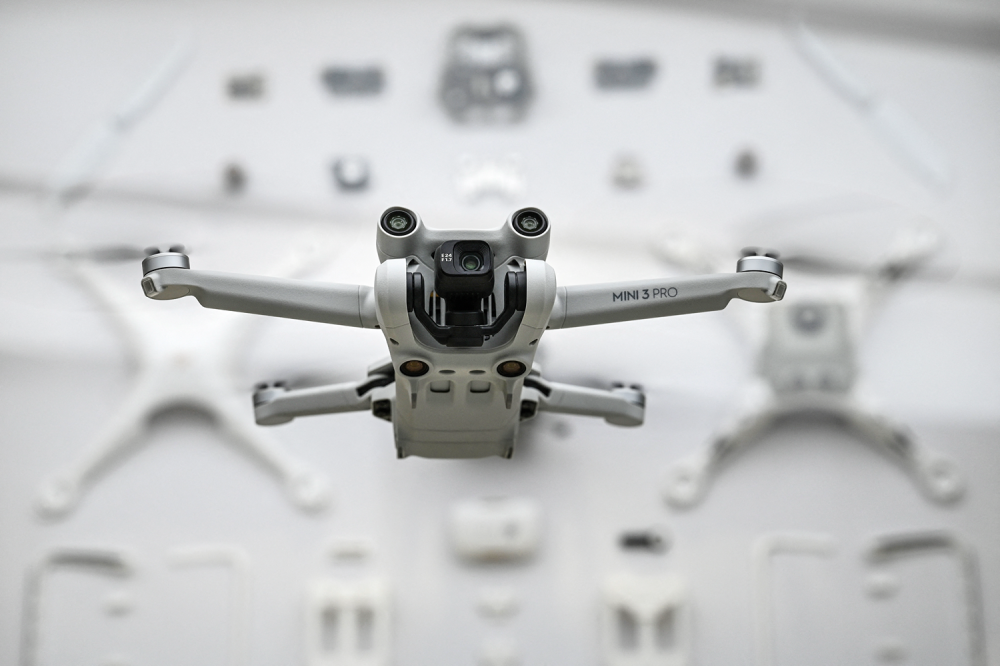China’s Leading Drone Manufacturer Strips Security Features: A Puzzling Move
In a surprising turn of events, China’s foremost drone manufacturer has announced the removal of critical security features from its product lineup. This decision has sparked a wave of concern among industry experts, policymakers, and consumers alike, as it comes at a time of heightened global tensions and increasing scrutiny over technology security. As nations grapple with the implications of cutting-edge technology in defense and surveillance, the ramifications of this decision could be far-reaching.
Understanding the Decision
The drone manufacturer, which has dominated the market with its innovative designs and advanced technologies, has made headlines for its bold move to strip away essential security functions. These features, which were originally designed to safeguard user data and prevent unauthorized access, have been a cornerstone of the company’s product integrity. The timing of this decision raises several questions:
- What prompted the company to take such a significant step?
- How will this impact consumer trust in their products?
- What does this mean for the broader drone industry?
Market Context and Motivations
To understand the motivations behind this puzzling move, one must consider the current market landscape. The global drone market is experiencing explosive growth, projected to reach a staggering $43 billion by 2024. With competition fiercer than ever, manufacturers are constantly seeking ways to differentiate themselves. Some analysts suggest that the removal of security features may be an attempt to streamline production costs or enhance user experience by simplifying software interfaces.
Moreover, as geopolitical tensions escalate—especially between China and the United States—there’s an ongoing debate regarding technology’s role in national security. By eliminating these features, the company might be aiming to pivot its products toward new markets where regulatory concerns are less stringent, betting on a more liberal approach to technology deployment.
Implications for Security and Trust
The decision to strip security features raises serious concerns regarding data privacy and product safety. Drones equipped with advanced surveillance capabilities are already under the microscope due to potential misuse. The absence of robust security measures could lead to:
- Data Breaches: Consumers and businesses may be vulnerable to unauthorized access to sensitive information.
- Increased Surveillance: The potential for misuse by both state and non-state actors could escalate, leading to privacy violations.
- Loss of Consumer Confidence: Users may hesitate to invest in products that lack essential security assurances.
Global Response and Regulatory Concerns
As the world becomes increasingly vigilant about technology security, regulatory bodies around the globe are likely to react strongly to this decision. Countries that have already raised concerns about the security implications of foreign technology may impose stricter regulations on drone imports, particularly from China. This could lead to:
- Increased Scrutiny: Regulatory agencies may conduct more rigorous assessments of drone technology before allowing them into their markets.
- Trade Barriers: Countries may implement tariffs or bans on drones lacking adequate security features, impacting the manufacturer’s global sales.
- Innovation Stagnation: A shift in focus away from security may hinder future advancements in drone technology.
Industry Reactions and Expert Opinions
Industry experts are divided on the implications of this decision. Some see it as a risky gamble that could backfire, while others view it as a strategic move to capture a more cost-sensitive market segment.
Dr. Li Wei, a prominent analyst in the field of technology security, remarked, “This move could alienate consumers who prioritize security over price. The long-term impact on the brand’s reputation could be detrimental.” Conversely, others argue that the decision could allow for more accessible drone technology, potentially democratizing its use in various sectors, from agriculture to environmental monitoring.
Consumer Perspectives
For many consumers, the implications of this decision are personal. Drone enthusiasts, hobbyists, and professional users alike are left to weigh the benefits of advanced features against the potential risks associated with weakened security. Some key considerations include:
- Use Case: For casual users, the lack of security features may not be as concerning, while businesses could face significant risks.
- Brand Loyalty: Established users of the manufacturer’s products may feel betrayed, leading to a potential loss of customer loyalty.
- Future Purchases: Consumers may opt for competitors who maintain strict security protocols, reshaping market dynamics.
Looking Ahead: A Path Forward
As the dust settles on this unexpected decision, both consumers and industry stakeholders must grapple with the implications. There remains a pressing need for dialogue around technology security, especially in an era where drones play an increasingly critical role in both commercial and defense sectors.
Moving forward, the manufacturer may need to reassess its strategy, perhaps reintroducing security features in a revised format or offering different product lines that cater to varying levels of consumer concern. Balancing innovation with security will be key to navigating the complex landscape of modern technology.
Conclusion
China’s leading drone manufacturer stripping security features from its products is indeed a puzzling move, raising significant concerns about the future of technology security. As the world watches closely, the ramifications of this decision could shape the trajectory of the drone industry as a whole. Stakeholders must work collaboratively to ensure that innovation does not come at the expense of safety and security, fostering an environment where technology can thrive without compromising trust.
See more Future Tech Daily

